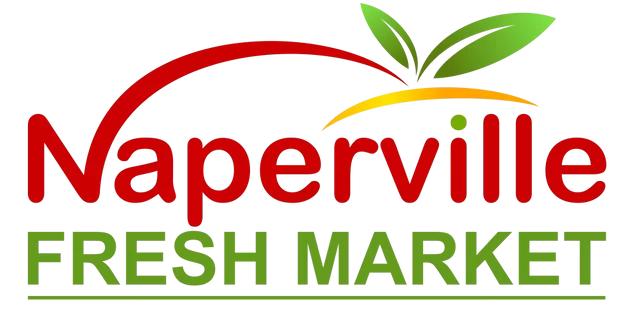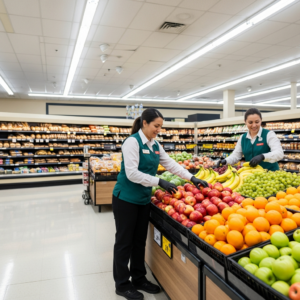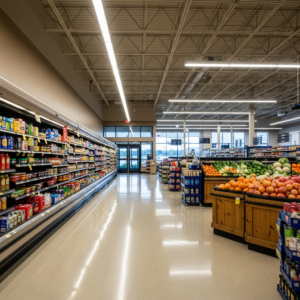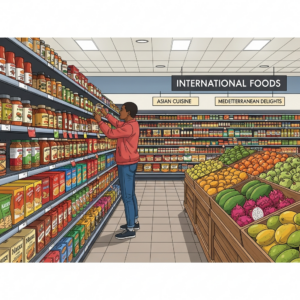In an increasingly globalized world, supermarkets have become masters at sourcing products from around the globe. The ability to offer a diverse selection of international goods is essential for staying competitive and meeting the evolving tastes of consumers. But how do supermarkets establish and maintain these extensive global supplier networks? It requires a blend of strategy, relationship-building, and a deep understanding of supply chain dynamics.
Establishing Long-Term Supplier Partnerships
Supermarkets rely on strong, long-term partnerships with suppliers to ensure a consistent flow of products. Building trust is key when working with farmers, manufacturers, and producers across different regions. These relationships are often cultivated over years, enabling supermarkets to secure favorable pricing, reliable product quality, and consistent deliveries. By maintaining direct communication with suppliers, supermarkets can ensure their shelves are stocked with fresh and diverse offerings year-round, whether it’s exotic fruits from South America or spices from Asia.
Navigating International Trade and Compliance
Supermarkets operating in the global market must navigate the complexities of international trade regulations and compliance. Importing products requires an understanding of tariffs, customs regulations, and quality standards, which vary from country to country. Supermarkets often employ dedicated logistics and compliance teams to manage these aspects, ensuring that the products sourced from different regions meet both the supermarket’s standards and the legal requirements of the destination country. This meticulous attention to trade regulations is vital in preventing delays and ensuring that perishable goods arrive in optimal condition.
Building Sustainable and Ethical Supply Chains
With growing consumer awareness around sustainability, supermarkets are increasingly focused on building ethical and environmentally responsible supply chains. This means partnering with suppliers who prioritize sustainable farming practices, fair labor standards, and reduced environmental impact. Supermarkets now frequently seek out suppliers who hold certifications like Fair Trade, organic, or Rainforest Alliance, ensuring that the products on their shelves align with the values of eco-conscious consumers. This focus on ethical sourcing helps supermarkets enhance their brand reputation while contributing to global sustainability efforts.
Leveraging Technology for Efficient Sourcing
Technology plays a pivotal role in modern supermarket sourcing strategies. Supermarkets use advanced digital tools to track shipments, monitor supplier performance, and predict customer demand. These technologies enable them to manage the complexities of global supply chains more efficiently, reducing waste and ensuring products arrive in stores on time. Data analytics help supermarkets anticipate market trends, enabling them to adjust their sourcing strategies quickly and provide consumers with the latest products from international markets. The integration of technology has streamlined the entire sourcing process, making global supplier networks more responsive and agile.
By fostering long-term supplier relationships, navigating international trade complexities, committing to sustainability, and leveraging technology, supermarkets have built expansive global supplier networks. These strategies allow supermarkets to deliver a wide range of international products that cater to their customers’ diverse preferences, making shopping a rich and varied experience.
Learn More
Understanding Global Supply Chains in Supermarkets: Key Sourcing Techniques




